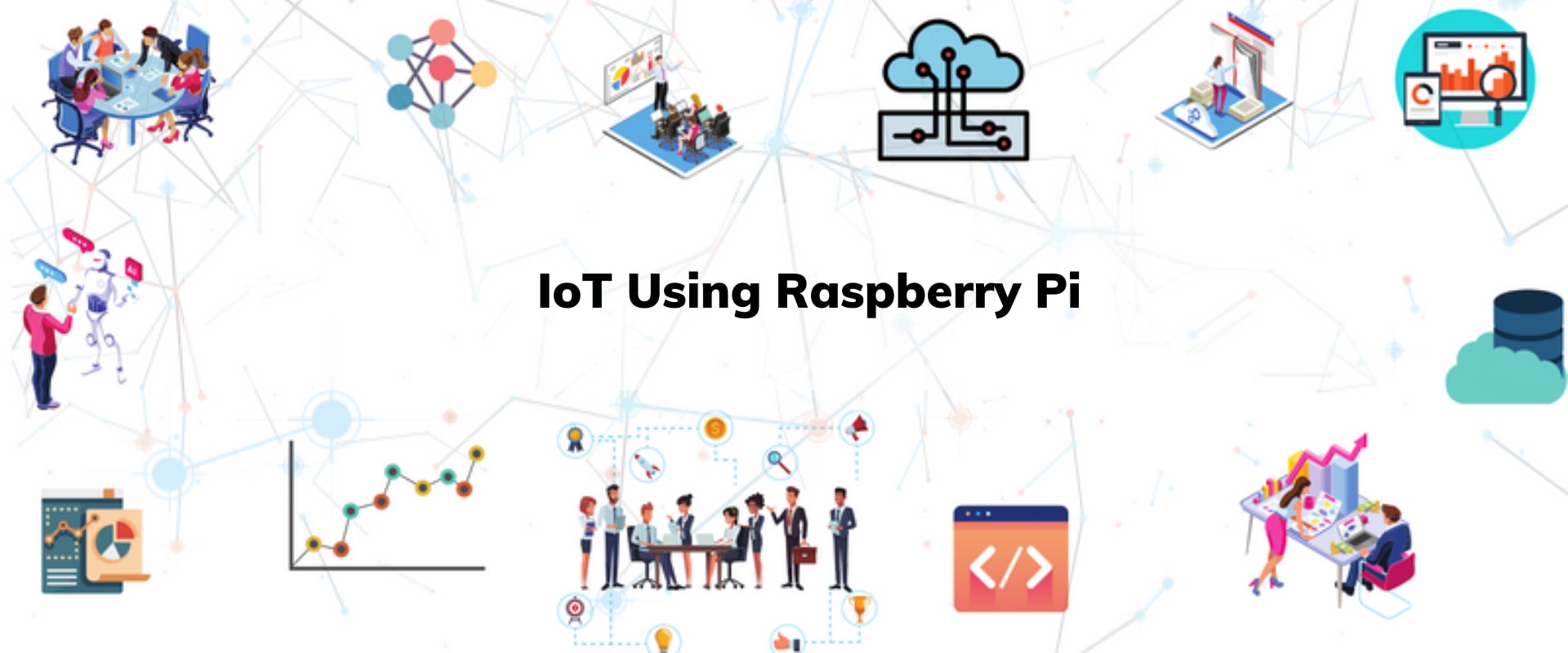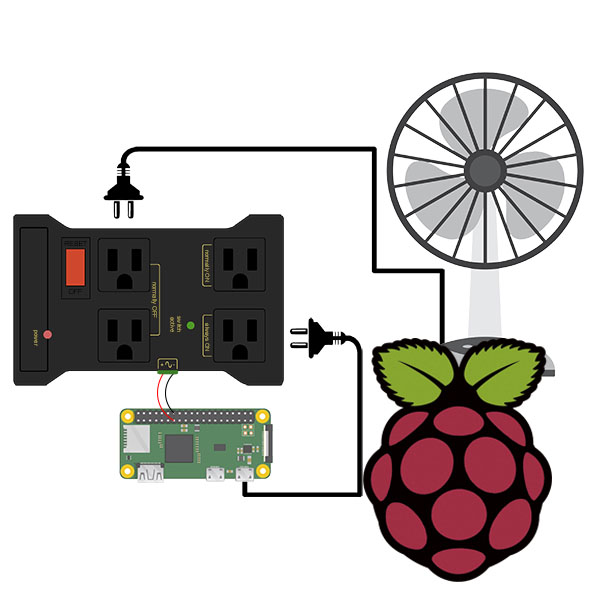What Are The Benefits Of IoT In Raspberry Pi? Unlocking The Power Of Smart Devices
Imagine this: a tiny little device that fits in your pocket but can control your entire home, monitor your plants, or even automate your business processes. That’s right, we’re talking about Raspberry Pi and the Internet of Things (IoT). But what are the benefits of IoT in Raspberry Pi? Well, buckle up, because we’re about to dive deep into this tech-savvy world where small devices can make a big impact.
Picture a world where every gadget you own is interconnected, talking to each other like a well-oiled machine. This is the essence of IoT, and when paired with the versatility of Raspberry Pi, it opens up endless possibilities. From smart homes to industrial automation, the combination of IoT and Raspberry Pi is like peanut butter and jelly—just better.
Now, before we get too carried away, let’s break it down. IoT stands for the Internet of Things, and it’s all about connecting everyday objects to the internet. Raspberry Pi, on the other hand, is a small yet powerful computer that can be programmed to do just about anything. Together, they create a dynamic duo that’s revolutionizing the tech industry. So, let’s explore the benefits, shall we?
Daftar Isi
Key Benefits of IoT in Raspberry Pi
The Future of IoT and Raspberry Pi
Key Benefits of IoT in Raspberry Pi
So, why should you care about IoT on Raspberry Pi? Well, my friend, the benefits are as vast as the ocean. Let’s break it down into bite-sized chunks so you can fully grasp the awesomeness of this tech combo.
Enhanced Connectivity
First things first, IoT on Raspberry Pi gives you the power to connect just about anything. Whether it’s your coffee maker, your security system, or your weather station, Raspberry Pi can handle it all. This level of connectivity allows for seamless communication between devices, making your life easier and more efficient.
Automation at Your Fingertips
Who doesn’t love automation? With Raspberry Pi and IoT, you can automate repetitive tasks, saving you time and effort. Imagine waking up to a perfectly brewed cup of coffee, all thanks to your smart coffee machine controlled by your Raspberry Pi. Sounds pretty sweet, right?
Data Collection and Analysis
Another major benefit is the ability to collect and analyze data. Whether you’re monitoring environmental conditions, tracking inventory, or analyzing user behavior, Raspberry Pi can gather all the data you need. This data can then be used to make informed decisions, improving your operations and efficiency.
Understanding Raspberry Pi
Now that we’ve covered the benefits, let’s take a step back and talk about Raspberry Pi itself. This little device has taken the tech world by storm, and for good reason. Here are some key points to know:
- Raspberry Pi is a credit-card-sized computer that plugs into a TV or monitor.
- It runs on Linux-based operating systems, making it highly customizable.
- It’s incredibly affordable, with models starting at just $35.
- It’s perfect for hobbyists, educators, and professionals alike.
With its tiny size and big capabilities, Raspberry Pi is a game-changer in the world of computing. Whether you’re building a smart home or developing complex automation systems, Raspberry Pi has got you covered.
What Exactly is IoT?
Okay, so we’ve talked about Raspberry Pi, but what exactly is IoT? Simply put, IoT is the network of physical objects—“things”—that are embedded with sensors, software, and connectivity, enabling them to exchange data with other devices and systems over the internet. Think of it as a giant web where everything is connected.
IoT has countless applications, from smart homes to wearable technology to industrial automation. It’s transforming the way we live and work, making our lives more convenient, efficient, and connected.
Cost-Effective Solutions
One of the biggest advantages of using IoT on Raspberry Pi is its cost-effectiveness. Unlike expensive industrial-grade systems, Raspberry Pi offers a budget-friendly solution without compromising on functionality. Here’s why:
- Raspberry Pi is affordable, with models ranging from $35 to $75.
- It uses open-source software, reducing licensing costs.
- It’s energy-efficient, consuming minimal power.
- It’s scalable, allowing you to start small and expand as needed.
Whether you’re a small business owner or a DIY enthusiast, Raspberry Pi offers a cost-effective way to implement IoT solutions.
Unlimited Customization
Another major benefit of IoT on Raspberry Pi is the level of customization it offers. Unlike pre-built systems, Raspberry Pi allows you to tailor your setup to your specific needs. Here’s how:
- You can choose from a wide range of sensors and modules to suit your project.
- You can program it using various programming languages, such as Python or C++.
- You can integrate it with cloud services for advanced data processing.
- You can design your own user interface for a more personalized experience.
This level of customization makes Raspberry Pi a favorite among hobbyists and professionals alike.
Scalability and Flexibility
Scalability is another key advantage of using IoT on Raspberry Pi. Whether you’re starting with a small project or planning to expand to a larger system, Raspberry Pi can grow with you. Here’s why:
- It supports multiple devices and sensors, allowing you to add more as needed.
- It can be connected to cloud platforms for scalable data storage and processing.
- It’s compatible with a wide range of protocols and standards, ensuring seamless integration.
With its flexibility and scalability, Raspberry Pi is perfect for both small-scale projects and large-scale deployments.
Educational Value
Beyond its practical applications, IoT on Raspberry Pi also has significant educational value. It’s an excellent tool for teaching programming, electronics, and computer science concepts. Here’s why:
- It’s easy to learn and use, making it perfect for beginners.
- It offers hands-on experience with real-world applications.
- It encourages creativity and problem-solving skills.
- It’s supported by a large community of developers and educators.
Whether you’re a student, teacher, or lifelong learner, Raspberry Pi offers a wealth of educational opportunities.
Real-World Applications
Now, let’s talk about some real-world applications of IoT on Raspberry Pi. The possibilities are endless, but here are a few examples:
Smart Homes
With Raspberry Pi and IoT, you can create a fully automated smart home. From controlling your lighting and temperature to monitoring your security system, Raspberry Pi can handle it all.
Environmental Monitoring
Raspberry Pi can be used to monitor environmental conditions such as temperature, humidity, and air quality. This data can then be used to make informed decisions about climate control and resource management.
Industrial Automation
In the industrial sector, Raspberry Pi can be used for machine monitoring, predictive maintenance, and process optimization. This can lead to increased efficiency and reduced downtime.
Challenges and Considerations
While the benefits of IoT on Raspberry Pi are undeniable, there are also some challenges to consider. Here are a few:
- Security: As with any connected device, security is a major concern. It’s important to implement proper security measures to protect your data and devices.
- Complexity: While Raspberry Pi is user-friendly, setting up an IoT system can be complex, especially for beginners. It may require some technical know-how.
- Compatibility: Not all devices and systems are compatible with Raspberry Pi, so it’s important to do your research before investing in hardware.
By addressing these challenges, you can ensure a successful IoT implementation on Raspberry Pi.
The Future of IoT and Raspberry Pi
So, where is this technology headed? The future of IoT and Raspberry Pi looks bright, with advancements in artificial intelligence, machine learning, and 5G technology driving innovation. Here are a few trends to watch:
- Edge Computing: As more devices become connected, edge computing will play a crucial role in processing data closer to the source, reducing latency and improving performance.
- AI Integration: AI will become increasingly integrated into IoT systems, enabling smarter decision-making and automation.
- 5G Connectivity: With the rollout of 5G networks, IoT devices will benefit from faster speeds and lower latency, opening up new possibilities for real-time applications.
As technology continues to evolve, the potential of IoT on Raspberry Pi will only grow.
Conclusion
And there you have it, folks. The benefits of IoT in Raspberry Pi are vast and varied, offering endless possibilities for innovation and creativity. From enhanced connectivity and automation to cost-effective solutions and educational value, Raspberry Pi and IoT are a match made in heaven.
So, whether you’re building a smart home, monitoring the environment, or automating industrial processes, Raspberry Pi has got you covered. And with the rapid advancements in technology, the future looks even brighter for this dynamic duo.
Now, it’s your turn. Have you tried implementing IoT on Raspberry Pi? Share your experiences in the comments below. And don’t forget to share this article with your tech-savvy friends. Together, let’s unlock the power of smart devices and make the world a better place—one Raspberry Pi at a time!

IoT Raspberry Pi Proposal PDF Of Things Raspberry Pi

IoT Using Raspberry Pi Pianalytix Build RealWorld Tech Projects

Raspberry pi iot projects tecnobap